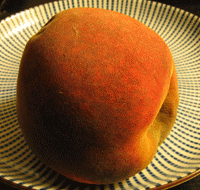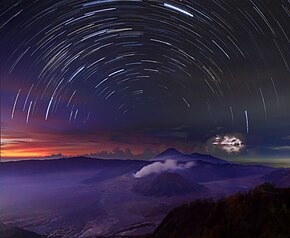| |
|
|
Ecology
|
|
Ecology (from Ancient Greek οἶκος (oîkos) 'house', and -λογία (-logía) 'study of') is the natural science of the relationships among living organisms, including humans, and their physical environment. Ecology considers organisms at the individual, population, community, ecosystem, and biosphere levels. Ecology overlaps with the closely related sciences of biogeography, evolutionary biology, genetics, ethology, and natural history. Ecology is a branch of biology, and is the study of abundance, biomass, and distribution of organisms in the context of the environment. It encompasses life processes, interactions, and adaptations; movement of materials and energy through living communities; successional development of ecosystems; cooperation, competition, and predation within and between species; and patterns of biodiversity and its effect on ecosystem processes. Ecology has practical applications in conservation biology, wetland management, natural resource management (agroecology, agriculture, forestry, agroforestry, fisheries, mining, tourism), urban planning (urban ecology), community health, economics, basic and applied science, and human social interaction (human ecology). The word ecology (German: Ökologie) was coined in 1866 by the German scientist Ernst Haeckel. The science of ecology as we know it today began with a group of American botanists in the 1890s. Evolutionary concepts relating to adaptation and natural selection are cornerstones of modern ecological theory. Ecosystems are dynamically interacting systems of organisms, the communities they make up, and the non-living (abiotic) components of their environment. Ecosystem processes, such as primary production, nutrient cycling, and niche construction, regulate the flux of energy and matter through an environment. Ecosystems have biophysical feedback mechanisms that moderate processes acting on living (biotic) and abiotic components of the planet. Ecosystems sustain life-supporting functions and provide ecosystem services like biomass production (food, fuel, fiber, and medicine), the regulation of climate, global biogeochemical cycles, water filtration, soil formation, erosion control, flood protection, and many other natural features of scientific, historical, economic, or intrinsic value. (Full article...) Selected article -The Green Planet is a 2022 nature documentary series on plants and their relationship with animals, humans and the environment. It was produced by BBC Studios Natural History Unit and narrated and presented by David Attenborough. Utilising time-lapse photography, drones and specially designed camera rigs called "Triffids", the series aimed to show plant movements over prolonged periods, but sped up into real time. The series first aired on BBC One on 9 January 2022, and consisted of 5 episodes. It was subsequently made available on demand on BBC iPlayer and was aired internationally on other networks. (Full article...)Selected image - Credit: Andrew Dunn (User:Solipsist) General imagesThe following are images from various ecology-related articles on Wikipedia.
Related WikiProjectsThings you can do
Entries here consist of Good and Featured articles, which meet a core set of high editorial standards.
 Nature is an inherent character or constitution, particularly of the ecosphere or the universe as a whole. In this general sense nature refers to the laws, elements and phenomena of the physical world, including life. Although humans are part of nature, human activity or humans as a whole are often described as at times at odds, or outright separate and even superior to nature. During the advent of modern scientific method in the last several centuries, nature became the passive reality, organized and moved by divine laws. With the Industrial revolution, nature increasingly became seen as the part of reality deprived from intentional intervention: it was hence considered as sacred by some traditions (Rousseau, American transcendentalism) or a mere decorum for divine providence or human history (Hegel, Marx). However, a vitalist vision of nature, closer to the pre-Socratic one, got reborn at the same time, especially after Charles Darwin. (Full article...)Selected biography - Sergei Nikolaevich Winogradsky ForMemRS (Russian: Сергей Николаевич Виноградский; Ukrainian: Сергій Миколайович Виноградський; 13 September [O.S. 1 September] 1856, Kyiv – 24 February 1953, Brie-Comte-Robert), also published under the name Sergius Winogradsky, was a Ukrainian and Russian microbiologist, ecologist and soil scientist who pioneered the cycle-of-life concept. Winogradsky discovered the first known form of lithotrophy during his research with Beggiatoa in 1887. He reported that Beggiatoa oxidized hydrogen sulfide (H2S) as an energy source and formed intracellular sulfur droplets. This research provided the first example of lithotrophy, but not autotrophy. Born in the capital of present-day Ukraine, his legacy is also celebrated by this nation. His research on nitrifying bacteria would report the first known form of chemoautotrophy, showing how a lithotroph fixes carbon dioxide (CO2) to make organic compounds. (Full article...)Did you know (auto-generated)
Selected quote -
Ecology news
Additional News Highlights
Selected publication -African Invertebrates is a peer-reviewed scientific journal that covers the taxonomy, systematics, biogeography, ecology, conservation, and palaeontology of Afrotropical invertebrates, whether terrestrial, freshwater, or marine. African Invertebrates is currently published twice a year and accepts large revisionary works, as well as review papers and smaller contributions. (Full article...) Related portalsMore did you know -Related articlesAssociated WikimediaThe following Wikimedia Foundation sister projects provide more on this subject:
Web resources
Discover Wikipedia using portals |
- ^ "Data Sources". Global Footprint Network. 2010-02-05. Retrieved 2010-02-05.
















































Recent Comments